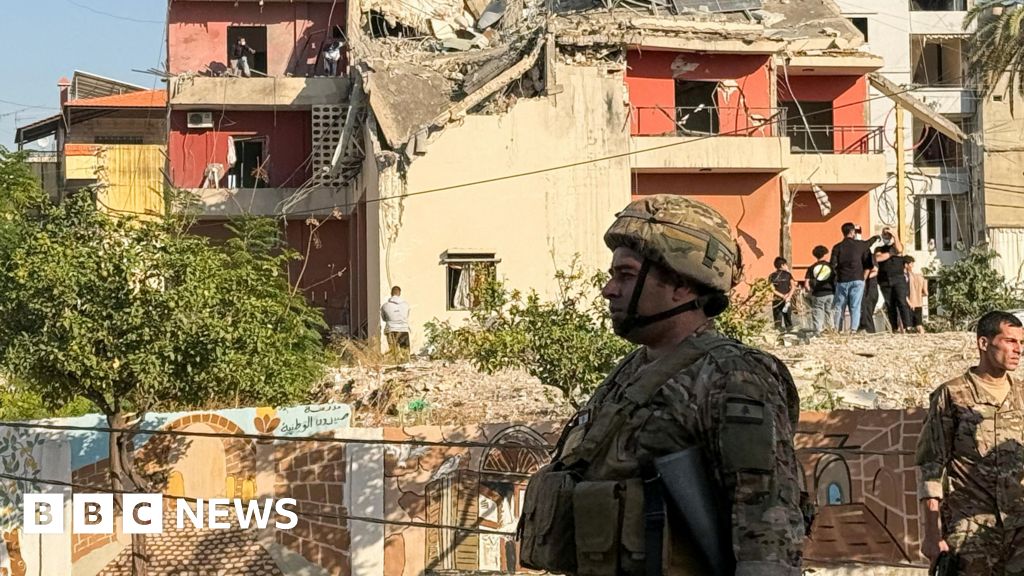Israel and Lebanon appear to be close to a ceasefire deal, with the Israeli cabinet set to meet on Tuesday to discuss it, Israeli officials say.
A 60-day truce is being proposed to end fighting between Israel and the Iranian-backed Lebanese militia Hezbollah.
It is said to include the withdrawal of Israeli forces from southern Lebanon and an end to the Hezbollah presence in the area.
It is often said that the darkest hour is before the dawn. There has been an intensification in the exchange of fire between Israel and Hezbollah, just as the two sides haggle over the final details of the deal.
Sunday saw around 250 projectiles fired into Israel from Lebanon, with most intercepted, while the Israeli Air Force has continued to carry out air strikes on suspected Hezbollah positions and weapons stores in Beirut and elsewhere.
The deal would include an increase in the presence of the Lebanese army in the area vacated by Israel and Hezbollah, according to a Western diplomat who spoke on condition of anonymity.
Lebanese deputy parliament speaker Elias Bou Saab said, quoted by Reuters, that there were now “no serious obstacles” to a ceasefire.
One major sticking point – who would monitor the truce – had been resolved, he said, with a five-country committee set up including France as a member and chaired by the US.
Also holding up the deal has been Israel’s insistence on its right to go back into Lebanon and take whatever military action it decides is necessary if it believes Hezbollah is moving back into southern Lebanon south of the Litani River or preparing to launch an attack on Israel.
This freedom of movement was unpalatable to both Hezbollah and the Lebanese government but Amos Hochstein, the US envoy, is believed to have made it clear, as he shuttled between the two countries, that there was a time limit on this ceasefire deal.
Concerns over how a ceasefire would be enforced, given the comparative weakness of both the UN Interim Force in Lebanon (Unifil) and the Lebanese Army, appear to have been allayed.
But then there is the domestic Israeli factor. The hard right National Security Minister, Itamar Ben Gvir, has taken to social media to voice his opposition to a ceasefire deal, calling it “a grave mistake”. He said that now, with Hezbollah on the back foot militarily, was “a historic opportunity” to destroy it.
Since the conflict intensified in late September, Lebanese authorities have said any deal should be limited to the terms of United Nations Security Council Resolution 1701, which ended the 2006 war between Hezbollah and Israel.
The resolution includes the withdrawal of Hezbollah’s fighters and weapons in areas between the Blue Line – the unofficial frontier between Lebanon and Israel – and the Litani river, about 30km (20 miles) from the boundary with Israel.
Israel says that was never fully respected, while Lebanon says Israeli violations included military flights over Lebanese territory.
Israel’s stated goal in its war against Hezbollah is to allow the return of about 60,000 residents who have been displaced from communities in northern Israel because of the group’s attacks.
In Lebanon, more than 3,750 people have been killed and at least 15,600 injured since October 2023, according to Lebanese authorities, with more than one million forced from their homes.
Several people were injured and buildings damaged in Hezbollah’s Sunday attacks on northern and central Israel, some of them near Tel Aviv, Israel’s police said.
The attacks followed an Israeli air strike on central Beirut on Saturday, in which the Lebanese health ministry said 29 people were killed.

